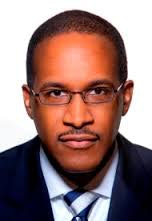During the month of February, the C-SPAN bus traveled to eight historically Black college campuses to provide viewers with insight on these institutions. Since these are my colleagues, I made sure I watched each as this was great exposure not only for their campuses, but for all historically Black colleges and universities (HBCUs).
As the phone lines were opened, a pattern generally emerged. At least one caller each day raised some form of question about the need, relevance or role of historically Black colleges and universities in the 21st century. All of us in the HBCU community are used to these questions; we get them all the time from reporters, funders, politicians, you name it. So the questions were not unexpected and my colleagues were able to handle them easily, although I am sure the callers completely dismissed their answers.

Robert called from New Baltimore, Michigan, asking if a school had White students and, if not, why not? Fair question. I wonder why Robert, who lives in a town of 12,000 people that is 94 percent White, doesn’t live in a town with more Black residents. He’s only 35 miles from Detroit, and may even work there, but he chooses to live where there are virtually no Black people. Choice works for Robert, but not for Black students who want an HBCU experience.
Shawn from Shrewsbury, Massachusetts, called twice that week. The first time he told the college president, “I don’t appreciate what you do.” The second time he said HBCUs perpetuate racial differences and then went off on a tangent about President Obama and ended his call dropping the F-bomb, on live TV. Shrewsbury. 35,000 residents, 89 percent White and 0.12 percent Black. Again, Shawn has intentionally limited interactions with Black people but feels the need to offer an opinion on HBCUs.
The most fascinating comment came from Thomas in Cincinnati. I completed graduate school at Miami University in Oxford, Ohio, 35 miles from Cincinnati. Thomas asked if it was acceptable to have Black colleges in the 21st century, that it seems like reverse segregation. He wanted to know why this was acceptable.
He lives in Cincinnati, the city listed by the Mixed Metro Project as one of the most segregated cities in the country. CensusScope.org listed Cincinnati as the eighth-most segregated urban area in 2011. In a Salon.com article, University of Cincinnati historian David Stradling says, “There are so many places where whites will try to flee the problems of the city, including the problem of diversity. Obviously the No. 1 cause of this is, of course, simply racism.”
Thomas lives in the city that was featured in a 2014 Education Week story called “Still Segregated After 50 Years.” Consider the demographic data for the high schools of the Cincinnati Public Schools: Western Hills, 82 percent Black. Withrow University High, 88 percent Black. Aiken, 92 percent Black. Hughes STEM, 93 percent Black. Taft, 98 percent Black. The city is 45 percent Black, but Hamilton County is only 26 percent Black. Thomas pays taxes to fund segregated schools, yet wants to talk about the evils of reverse racism. His lived experience is one of hypocrisy.
Thomas, along with Shawn, Robert and Jeff, represent a segment of America that loves to attack HBCUs for no reason other than they say they’re historically Black. Each willfully lives in segregation, an indication that they aren’t interested in integration or developing meaningful cross-cultural relationships. They simply want Blackness to go away, and they have done well to isolate themselves from Black people.
So we find ourselves in this conundrum. If we stop identifying ourselves as historically Black, and remove all semblance of HBCU programs, events, awards, etc. maybe this vitriol would die down. But if we stop simply to appease some loud critics, do we not only lose our history, but ultimately, lose an opportunity to continue to address real issues?
For now, I’ll stick with historically Black until the hypocrites can explain to me why HBCUs are bad, yet the overwhelmingly Black Benjamin Mays High, Booker T. Washington Middle and Rosa Parks Elementary schools are just fine.
Dr. Walter M. Kimbrough is the president of Dillard University. He can be reached at [email protected].


















